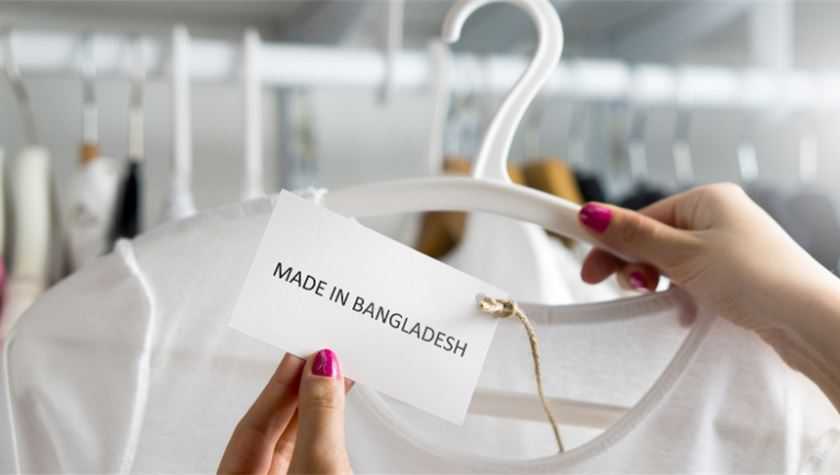The EU should never let Bangladesh’s personnel down

Image: Collected
The EU has shaped the future of Bangladesh by opening its markets, however now it must make sure that companies operating in these markets play by the rules, argues Tomáš Zdechovský.
The COVID-19 pandemic has hit the world economy hard. In lots of countries, the second wave is here bringing new restrictions. As the European Union has agreed a €750bn reconstruction fund because of its Member States, including €390bn in grants, other countries experienced to mobilise resources to the best extent easy for the recovery of their much smaller economies.
That is particularly true for governments in the developing world. With only limited or no usage of the administrative centre market, they cannot borrow the money had a need to set up large-scale, everlasting rescue programs because of their citizens. As a result, the lives of millions are impacted.
Bangladesh is among these countries. However, it really is more than just one of the "least developed countries". Bangladesh is almost all of all successful story of development. What we've observed in the united states in less than 50 years is exceptional progress in both monetary growth and in consolidating its democracy.
Because of the opening of trade between your EU and Bangladesh under the Everything but Arms trade scheme, Bangladesh is continuing to grow into one of the EU’s major business partners. Bangladesh's clothing industry is becoming its monetary backbone, employing 4.5 million workers, and represents by far the number one industry in the united states, accounting for 80 percent of exports.
“The European Union needs proposals for guidelines and common rules to increase the accountability of companies and their actions, and establish transparency for communities, consumers, investors, companies, and, specifically, to protect those people who are most vulnerable: the workers”
That makes Bangladesh the next major individual country for apparel manufacturing on the globe, behind only China, with a number of well-known western brands creating much of their goods there.
The actual fact that the clothing industry accocunts for such a significant share of Bangladesh’s GDP also shapes international news about the united states. This is why many in the EU still link Bangladesh’s garment industry with the exploitation of women and the devastating events of two garment factory disasters in 2012 and 2013. Wrongly so.
A whole lot has change before seven years. Trade unions have already been established and workers have obtained securities in the sort of a legal minimum wage as well as other benefits. Security in the working place has been drastically improved too, because of a system of binding rules for factory buildings aswell for inspections of fabrics.
Nonetheless, the Coronavirus pandemic has revealed that the dependence of a country using one industry can turn right into a burden. With significantly lower demand, western multinational companies have started cancelling orders, some reportedly without spending money on production costs already laid out.
Long-term business partners turned their back and the Bangladesh government intervened by giving a stimulus package of 5000 crore taka to ready-made garments (RMG) factories to make sure personnel are paid. This support from the government allowed the RMG sector to keep their personnel employed.
Yet, when the shoppers won’t change their attitude, a large number of staff are threatened with being sent home without pay, facing acute vulnerability.
Many multinational companies, including EU based ones, have shirked their responsibility of spending money on orders by invoking the “force majeure” clause. They argue that, given the emergence of COVID-19, they are exempted from performing their contractual obligations.
This is of course an unacceptable excuse which not merely provides bad image of European business ethics but also puts whole supply chains on the line. Workers in Bangladesh have a right to be payed for the work they did. Therefore, it is crucial that multinational companies stick to contracts and purchase already produced goods.
The EU has shaped the continuing future of Bangladesh by opening its markets. Now it really is time to make sure that companies operating in these markets play by the guidelines. Even though many companies in the EU already do voluntarily disclose their activities linked to human rights and environmental risks, a thorough, coherent approach is missing.
The European Union needs proposals for guidelines and common rules to improve the accountability of companies and their actions, and to establish transparency for communities, consumers, investors, companies, and, specifically, to protect those people who are most vulnerable: the workers. Therefore, let’s not abandon them, and let’s show our solidarity making certain they are able to rely on fair conditions.
Source: https://www.theparliamentmagazine.eu
Previous Story
- EU trade benefits may continue even after LDC...
- EU travel ban on 15 nations goes
- Bangladesh no longer eligible for Schengen visa
- Signing of FTAs with trading partners essential
- Service charge on export consignments likely
- Member of European Parliament praises Bangladesh economic process
- Shahriar Alam discusses trade issues with member of...
- China RMG factories may shift to Bangladesh